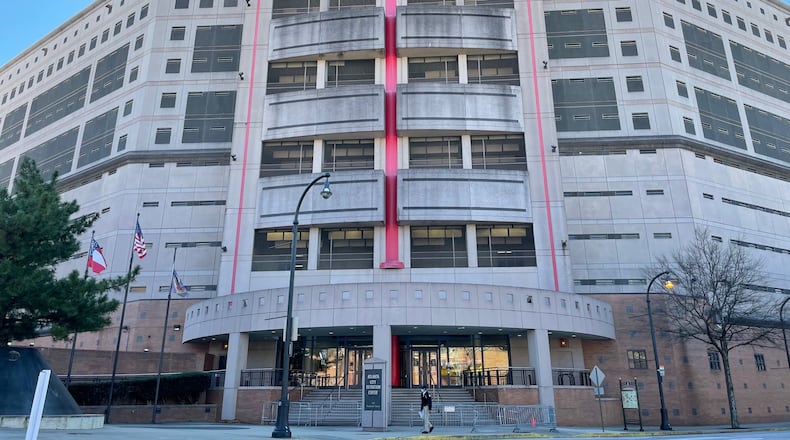The city of Atlanta and Fulton County have struck a deal that officials say could alter the way suspects in non-violent crimes are treated by routing them to a diversion center and away from the county’s perpetually overcrowded jail.
Representatives from each government celebrated Wednesday morning at the Atlanta City Detention Center, part of which will become the Center for Diversion and Services — a place police can send people with behavioral health issues instead of booking them into jail on Rice Street.
Traditionally, Atlanta cops have had only three options for non-violent offenders: send them to the over-crowded county jail, take them to Grady Hospital if they need medical help, or do nothing.
“Those were the options, but not anymore,” said Fulton County Superior Court Chief Judge Robert McBurney on Wednesday.
McBurney, a former prosecutor in the Fulton County District Attorney’s Office, told a story Wednesday of a man he’d prosecuted who later appeared in his court. McBurney asked why he kept getting arrested.
“Because there’s no other way, there’s no other way. This is how I get help,” McBurney remembers the man telling him.
The center will be based in a repurposed area of the city’s detention center, a facility that has sat mostly empty over the years as the county jail overflowed — forcing inmates to sleep on floors in what some county leaders have called subhuman conditions.
This diversion model is based off a center that services millions of people in Houston, Texas. The center aims to address the root causes of crime and poverty by providing behavioral health screenings, medical care, sobering rooms, case management, food, and a place to shower.
The center was proposed as a partnership between the city and county, Grady Memorial Hospital and the Policing Alternatives & Diversion Initiative (PAD). It builds on the work over the past few years by PAD, which began as a pilot program in 2017 and has since expanded citywide with support from the mayor and City Council.
Credit: John Spink
Credit: John Spink
“While we’re not 100 percent there, I’m grateful to say that we’ve made more progress under this administration,” Atlanta Mayor Keisha Lance Bottoms said Wednesday.
Fulton Commission Chairman Robb Pitts has suggested naming this center after Bottoms.
The creation of the center follows a yearlong push by Atlanta activists to close the city detention center and replace it with a community center. But that idea, which Mayor Bottoms’ administration backed earlier this year, faced pushback from the City Council and officials at Fulton County, who have sought to address their own jail overcrowding issues by using space in Atlanta’s facility.
The center was approved through a memorandum of understanding between the partner entities. The city is set to commit $3 million in one-time capital costs and $2.5 million in annual operating costs. The county will also kick in $2.5 million every year toward operations, according to a City Council resolution.
County commissioners Bob Ellis and Khadijah Abdur-Rahman — a Republican and Democrat, respectively — said they were proud to continue Fulton’s progress on behavioral health in a bi-partisan fashion.
“This center will help every Fulton County resident, every Fulton County taxpayer,” Abdur-Rahman said. Ellis agreed the center will save money.
The new center won’t completely fill the detention center, which is still open. But it gives a new use to the mostly empty facility.
The long-term future of the detention center could depend on the next mayoral administration and new City Council. The initial agreement lasts 2 years, with annual options to renew. The two mayoral candidates advancing to a Nov. 30 runoff election, City Council President Felicia Moore and Councilman Andre Dickens, have both said they would keep the jail open, at least in the short-term.
Bottoms said Wednesday she hopes the next mayor will fully re-purpose the facility.
Credit: WSBTV Videos
Keep Reading
The Latest
Featured





